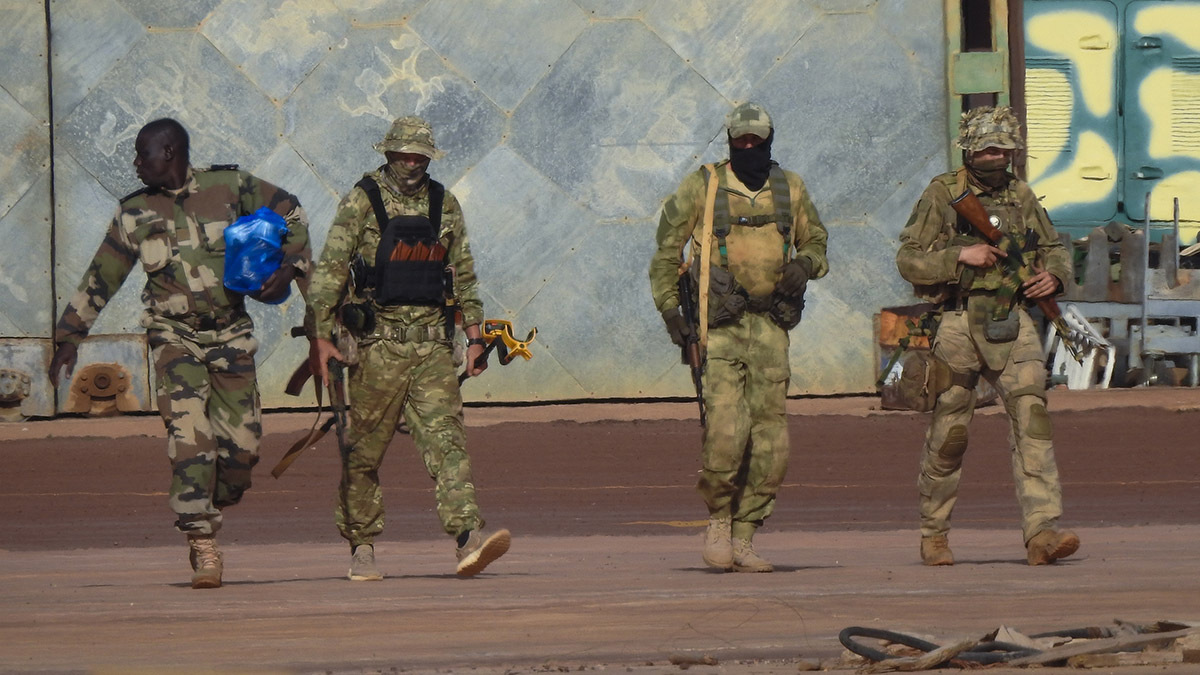The United States has imposed sanctions on Mali’s defense minister and two military officials, alleging their involvement in facilitating the expansion of the Russian mercenary group Wagner in the West African nation.
On Monday, US Secretary of State Antony Blinken revealed that the sanctions were directed at Colonel Sadio Camara, the Malian Defense Minister, Colonel Alou Boi Diarra, the Air Force Chief of Staff, and Lieutenant Colonel Adama Bagayoko, the Deputy Chief of Staff. Blinken accused this trio of actively promoting the growth of Wagner’s presence in Mali since December 2021.
He further noted a substantial increase of 278 percent in civilian casualties following the deployment of Russian mercenaries to the country. Blinken specified that many of these casualties resulted from joint operations conducted by the Malian Armed Forces alongside members of the Wagner Group.
In a separate statement, Brian Nelson from the US Treasury Department reiterated that these Malian officials had played a pivotal role in facilitating Wagner’s establishment in Mali over the past two years. He asserted that their actions had made their nation susceptible to Wagner’s destabilizing activities and human rights violations. Moreover, their actions opened the door for the exploitation of Mali’s sovereign resources, benefiting the Wagner Group’s operations in Ukraine.
This move follows a consistent pattern where the US and its allies have utilized sanctions to target the Wagner Group and its supporters. Just last week, the United Kingdom imposed sanctions on 13 individuals with affiliations to the Wagner Group in Central African Republic, Mali, and Sudan. These measures have intensified following Russia’s extensive invasion of Ukraine, where Wagner mercenaries have played a significant role. In January, the US officially classified Wagner as a “transnational criminal organization.”
More recently, in May, the US imposed sanctions on Ivan Aleksandrovich Maslov, identified by the Treasury Department as Wagner’s “principal administrator” in Mali.
US officials have consistently accused the organization founded by Russian citizen Yevgeny Prigozhin of advancing Russian interests in Africa through security agreements and disinformation campaigns.
The ramifications of a recent uprising led by Prigozhin in Russia on Wagner’s activities in Africa remain uncertain.
Malian authorities increasingly turned to the Wagner Group following a military-led coup in May 2021, which resulted in military officer Assimi Goita seizing power.
We are imposing sanctions on three Malian officials who collaborated with the Wagner Group to facilitate and expand its presence in Mali. Civilian casualties have surged more than threefold since the deployment of Wagner forces to Mali in December 2021.
This strategic shift coincided with heightened calls for the withdrawal of French troops. These troops were initially deployed to northern Mali in 2013 in response to a separatist movement. France’s military successfully completed its withdrawal in August of the preceding year.
Mali’s transitional government has yet to respond to a request for comment from the Reuters news agency regarding the US sanctions announced on Monday.
Escalating Violence
In conjunction with its pursuit of sanctions, Washington has leveled accusations against Wagner for its alleged role in orchestrating the departure of the United Nations peacekeeping mission in Mali, known as MINUSMA, which comprised 13,000 personnel.
In June, following Bamako’s request, the UN Security Council voted to conclude the decade-long MINUSMA mission. Although tensions had mounted around the mission, it was regarded as crucial for preventing a complete security vacuum in Mali’s extensive central region, bordering Niger and Burkina Faso. Operations for MINUSMA are slated to conclude entirely by the year’s end.
The tri-border region has witnessed a surge in violence in recent years, marked by the rivalry between ISIL (ISIS) and al-Qaeda-affiliated groups as they vie for influence. Concurrently, allegations have emerged linking Wagner to recent instances of abuse.
In January, United Nations experts called for an inquiry into severe human rights violations, potential war crimes, and crimes against humanity perpetrated by both government forces and Wagner mercenaries in Mali since 2021. These reported abuses encompassed over 500 fatalities, with the majority being summarily executed by government forces and “foreign military personnel” in the village of Moura, situated within the central Mopti region, in March 2022. A report from the UN High Commissioner for Human Rights in May detailed these findings. Although The Guardian newspaper had previously uncovered messages connecting the operation to Wagner, Malian officials dismissed the report as “fictitious.”
On Monday, Human Rights Watch accused government forces and suspected Wagner Group fighters of summarily executing or forcibly disappearing “several dozen civilians in Mali’s central region since December 2022.”










